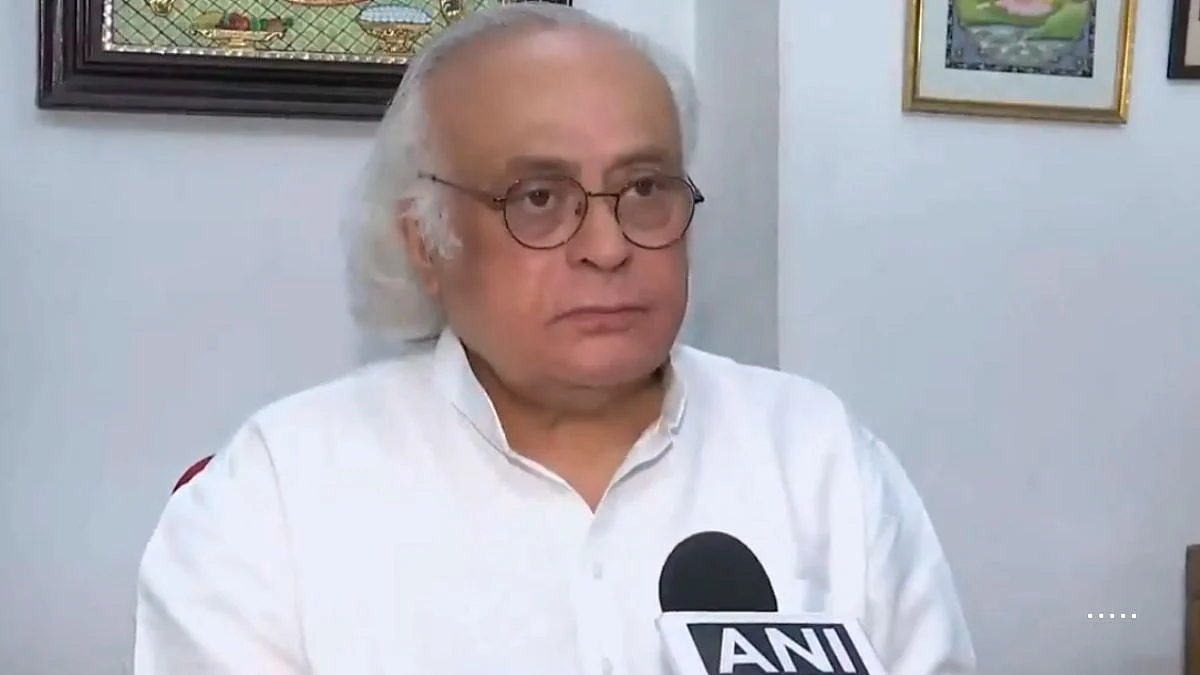Science
Congress MP Challenges Delhi’s ₹34 Crore Cloud Seeding Plan

Jairam Ramesh, a senior leader of the Congress party, has raised concerns over the Delhi government’s allocation of ₹34 crore for a winter cloud seeding experiment aimed at improving air quality in the national capital. Ramesh pointed out that specialists had advised against this initiative, suggesting that the government proceeded despite these warnings.
On December 5, 2024, the Union Minister of State for Environment, Forests, and Climate Change informed the Rajya Sabha that three agencies—the Commission for Air Quality Management in NCT, the Central Pollution Control Board, and the Indian Meteorological Department—had collectively expressed skepticism regarding the effectiveness of winter cloud seeding for enhancing air quality.
In a post on X, Ramesh stated, “The Delhi Government has spent ₹34 crore on a winter cloud seeding experiment in order to improve air quality. On December 5, 2024, the Union Minister of State of Environment, Forests, and Climate Change had answered a question in the Rajya Sabha saying that three specialised agencies had clearly advised against winter cloud seeding to improve air quality in Delhi.”
Moreover, Ramesh referenced a report from the Centre for Atmospheric Sciences at IIT Delhi, published on October 31, 2025, which concluded that winter cloud seeding would not lead to significant improvements in air quality. He criticized the government’s claims of a “slight improvement in a limited area for a day or two,” calling it a “cruel joke.”
The report, according to Ramesh, highlights a broader scientific consensus that questions the efficacy of cloud seeding as a viable solution for air quality issues. He said, “Winter cloud seeding certainly looks very dramatic and gives the impression that something is demonstrably being done by the government. But when the overwhelming scientific consensus raises so many doubts and serious questions on its efficacy, is it wise to lay so much store by it except as a headline-grabbing measure?”
Cloud seeding involves weather modification techniques designed to enhance precipitation from suitable clouds by dispersing substances such as silver iodide or sodium chloride. The Delhi government has conducted two cloud seeding operations as part of its broader air quality management strategy. However, a planned operation on a recent Wednesday was suspended due to insufficient moisture in the clouds.
A statement from IIT Kanpur indicated that the feasibility of cloud seeding is highly dependent on atmospheric conditions. “While rainfall could not be triggered because moisture levels were around 15 to 20 percent, the trial delivered valuable insights,” the statement noted.
Monitoring stations established across Delhi recorded real-time changes in particulate matter and moisture levels. IIT Kanpur reported a measurable reduction of 6 to 10 percent in PM2.5 and PM10 concentrations, suggesting that even under limited moisture conditions, cloud seeding may contribute to air quality improvements. The agency emphasized that these observations will inform future operations and help identify optimal conditions for effective intervention.
As the debate continues, the Delhi government faces increasing scrutiny over its air quality management strategies and the financial implications of investments such as the cloud seeding project. The ongoing discussions reflect a critical examination of the methods employed to tackle air pollution, a pressing issue for the city and its residents.
-

 World5 months ago
World5 months agoSBI Announces QIP Floor Price at ₹811.05 Per Share
-

 Lifestyle5 months ago
Lifestyle5 months agoCept Unveils ₹3.1 Crore Urban Mobility Plan for Sustainable Growth
-

 Science4 months ago
Science4 months agoNew Blood Group Discovered in South Indian Woman at Rotary Centre
-

 World5 months ago
World5 months agoTorrential Rains Cause Flash Flooding in New York and New Jersey
-

 Top Stories5 months ago
Top Stories5 months agoKonkani Cultural Organisation to Host Pearl Jubilee in Abu Dhabi
-

 Sports4 months ago
Sports4 months agoBroad Advocates for Bowling Change Ahead of Final Test Against India
-

 Science5 months ago
Science5 months agoNothing Headphone 1 Review: A Bold Contender in Audio Design
-

 Top Stories5 months ago
Top Stories5 months agoAir India Crash Investigation Highlights Boeing Fuel Switch Concerns
-

 Business5 months ago
Business5 months agoIndian Stock Market Rebounds: Sensex and Nifty Rise After Four-Day Decline
-

 Sports4 months ago
Sports4 months agoCristian Totti Retires at 19: Pressure of Fame Takes Toll
-

 Politics5 months ago
Politics5 months agoAbandoned Doberman Finds New Home After Journey to Prague
-

 Top Stories5 months ago
Top Stories5 months agoPatna Bank Manager Abhishek Varun Found Dead in Well









